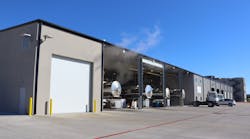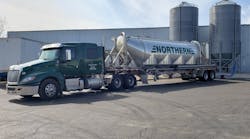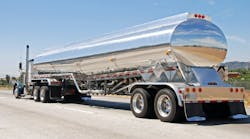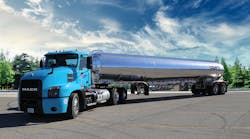Dick Witcher, outgoing chairman of the American Truck Dealers (ATD), urged dealers to meet with their members of Congress as “the first step in combating regulatory burdens,” and that the work of securing the future of dealerships begins with each of them.
“One of the continuing challenges in the months ahead will be advancing our agenda in Washington (DC),” he said in remarks delivered during at the ATD Convention & Expo in New Orleans. We have worked extensively with our elected officials to communicate our challenges and identify solutions. And in a time of a divisive Congress—and when regulators are eager to pass on new rules and regulations—we are called to protect your interests more than ever.
“Our legislators need to understand what we need. This starts with us inviting them to visit our dealerships and meet with our employees so they know who we are and what we do. It’s key in helping them to understand our business and use us as a resource before they make regulations that hurt our industry.”
Witcher, chief executive officer of Minuteman Trucks in Walpole MA, also warned dealers that the industry faces “serious regulatory overreach” that will ultimately make the job of dealers more difficult.
He cited regulations that are making the jobs of truck dealers more difficult, such as stricter federal emissions standards and fuel economy standards.
“We need to make sure that new fuel economy standards for trucks are not only good for the environment, but fair—and affordable—for the people who make them, sell them and drive them,” he said.
In the legislative arena, ATD strongly supports HR 52, a bipartisan bill sponsored by Congressmen Reid Ribble and Tim Walz, which keeps the federal excise tax rate at 12%.
“We have said ‘no’ to a rise in the federal excise tax for heavy-duty trucks,” Witcher said. “The 12% levy is already the highest excise tax imposed by Congress on a percentage basis. Increasing this tax could further hurt our industry and stall new truck sales.”








